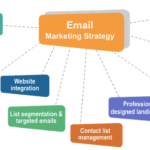blogging has become a popular way for individuals to express themselves, share their knowledge and expertise, and build a community around a particular topic or interest. However, with so many blogging platforms out there, it can be overwhelming for a beginner to know where to start. In this article, we will provide a comprehensive guide to get you started with blogging, covering the 10 most popular platforms and some helpful tips and tricks to help you along the way.
Before we dive into the different platforms, let’s talk about what you should consider before choosing a platform. When selecting a platform, you should think about your goals, the type of content you plan to publish, and the level of customization you want.
Once you have a clear idea of what you’re looking for, you can start exploring the various options available. Here are 10 platforms to get you started:
1. WordPress.com
WordPress.com is one of the most popular blogging platforms out there, with over 60 million active websites. It offers a free version with a limited number of features, as well as several paid plans with more advanced features.
WordPress.com has a large community of users and a wide range of customization options, making it a great choice for those who want to create a professional-looking blog. The platform also has a built-in content delivery network (CDN) and advanced security features to ensure your blog runs smoothly and safely.
2. Blogger
Blogger is a free blogging platform owned by Google, making it a great choice for those who already use Google services like Gmail or Google Drive. Blogger is simple and easy to use, with a range of templates and customization options.
One of the advantages of Blogger is that it’s deeply integrated with other Google services, making it easy to share your blog posts on social media or to import content from other sources.
3. Medium
Medium is a popular blogging platform that’s known for its clean design and user-friendly interface. The platform has a focus on long-form content and has been praised for its ability to help writers publish high-quality content quickly.
One of the advantages of Medium is its large community of readers, making it easy to get your content seen. The platform also has a built-in comment section, making it easy to engage with readers and respond to comments.
4. Tumblr
Tumblr is a microblogging platform that’s popular among younger users. It allows users to share short-form posts, known as “tumblrs,” with images, videos, and other media. Tumblr is known for its ease of use and its large community of users.
One of the advantages of Tumblr is its built-in social features, such as likes, reblogs, and followers, which make it easy to engage with other users. The platform also has a range of customization options, making it easy to personalize your blog.
5. Wix
Wix is a website builder that also offers a range of blogging tools. The platform has a user-friendly interface and a range of templates to help you get started. Wix offers both free and paid plans, with a variety of features and customization options.
One of the advantages of Wix is its ability to handle both blogging and e-commerce functionality, making it a great choice for those who want to create an online store. The platform also has a built-in SEO tool, making it easy to optimize your blog for search engines.
6. Weebly
Weebly is another website builder that offers a range of blogging tools. The platform has a user-friendly interface and a range of templates to help you get started. Weebly offers both free and paid plans, with a variety of features and customization options.
One of the advantages of Weebly is its ease of use, making it a great choice for those who are new to blogging. The platform also has a built-in e-commerce feature, making it easy to create an online store.
7. Ghost
Ghost is a minimalistic blogging platform that’s designed for writers. It offers a range of customization options, but keeps the focus on writing. Ghost is known for its ease of use and its focus on simplicity.
One of the advantages of Ghost is its speed, making it a great choice for those who want a fast and responsive blog. The platform also has a range of integrations, including social media and email marketing tools.
8. Typepad
Typepad is a paid blogging platform that offers a range of features and customization options. The platform is designed for professional bloggers and offers advanced tools for SEO, analytics, and marketing.
One of the advantages of Typepad is its range of customization options, making it a great choice for those who want a professional-looking blog. The platform also has a built-in scheduling feature, making it easy to plan your posts in advance.
9. Squarespace
Squarespace is a website builder that also offers a range of blogging tools. The platform has a user-friendly interface and a range of templates to help you get started. Squarespace offers both free and paid plans, with a variety of features and customization options.
One of the advantages of Squarespace is its beautiful templates, making it a great choice for those who want a visually appealing blog. The platform also has a built-in e-commerce feature, making it easy to create an online store.
10. LiveJournal
LiveJournal is a free blogging platform that’s been around since 1999. It’s known for its ease of use and its large community of users. LiveJournal has a range of customization options and a built-in friends system, making it easy to engage with other users.
One of the advantages of LiveJournal is its large community of users, making it easy to get your content seen. The platform also has a range of customization options, making it easy to personalize your blog.
Now that we’ve covered the different platforms, here are some helpful tips and tricks to get you started:
* Start by choosing a platform that aligns with your goals and preferences.
* Customize your blog with a unique theme and design.
* Use keywords and meta descriptions to optimize your blog for search engines.
* Write engaging and informative content that resonates with your audience.
* Promote your blog on social media and engage with your readers.
* Experiment with different layouts and formats to find what works best for your blog.
In conclusion, choosing the right blogging platform is just the first step in starting your blogging journey. With so many options available, it can be overwhelming to know where to start. By considering your goals, type of content, and level of customization, you can narrow down your options and choose a platform that meets your needs.
Whether you’re just starting out or looking to upgrade from your current platform, the 10 platforms covered in this article are a great place to start. From WordPress.com to LiveJournal, each platform has its own unique features and benefits.
Remember to stay focused, engage with your readers, and continuously produce high-quality content. With the right platform and mindset, you can build a successful and rewarding blogging experience.
FAQs:
Q: What is the best blogging platform for beginners?
A: The best blogging platform for beginners depends on their goals and preferences. Some popular options include WordPress.com, Blogger, and Medium.
Q: Can I customize my blog’s design and layout?
A: Most blogging platforms offer a range of customization options, including templates, themes, and CSS coding.
Q: How do I monetize my blog?
A: There are several ways to monetize a blog, including Google AdSense, affiliate marketing, and sponsored posts. Research your options and choose the best approach for your blog.
Q: Can I migrate my blog to a different platform?
A: In most cases, it’s possible to migrate your blog to a different platform. Research the export and import options for your current platform and new platform.
Q: How do I drive traffic to my blog?
A: Driving traffic to your blog requires a combination of marketing, SEO, and social media. Focus on producing high-quality content, engaging with your readers, and promoting your blog on social media and other online channels.









